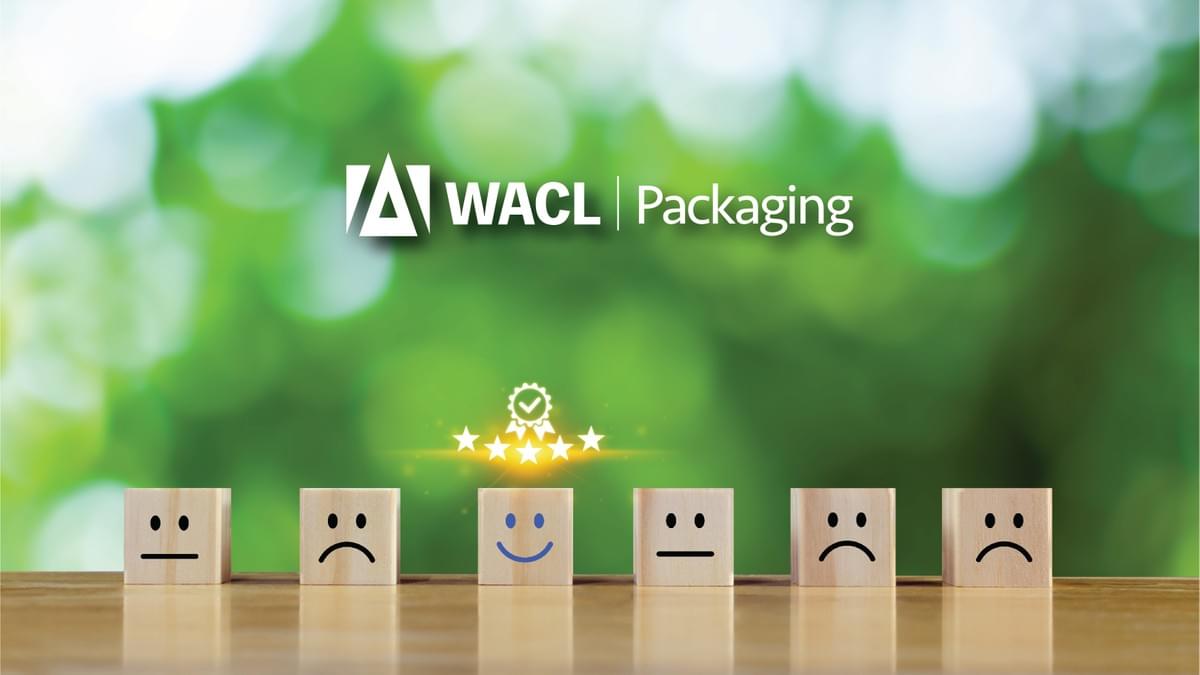


- …


- …

Quality control
Nowadays, quality control is crucial for all industries. In the packaging industry, quality control is also essential. WACL Packaging, as a professional packaging company, has always attached great importance to quality control and implements ISO9001:2015 Quality Management System and BRCGS Packing Materials Management System certification. Through the establishment of a strict quality management system, we ensures that all products meet the requirements of customers and the market.
WACL Packaging specializes in various types of composite packaging films and bags, in-mold labeling, plastic packaging products, disposable paper cups, and plates, widely used in food, daily chemical, pharmaceutical, and industrial fields. In addition to implementing ISO and BRCGS certification, WACL Packaging is committed to following the development of the international packaging industry, continuously introducing and researching advanced equipment and technology to provide higher quality products and better services. We aim to provide customers with complete packaging solutions and value-added services while maintaining a competitive edge in product quality.
International standard

Regulations and Standards on Food Contact Materials in Asian Countries
There are 48 recognized countries in Asia, including Central Asia and Turkey. Most Asian countries have incorporated regulations on food contact materials (FCM) in their food hygiene regulations.
The FCM regulations set standards and specifications for the definition, scope, and conditions of use for FCM and food contact materials and additives (FCA), as well as limits on specific food contact substances (FCS) and levels of migration testing and analysis methods. FCM and FCA include packaging materials, containers, tableware, cookware, utensils, machinery, and appliances that directly come into contact with food or food additives.
The FCM regulations stipulate general criteria for prohibiting packaging and containers that may generate any toxic, harmful, or hazardous substances, including a negative list that restricts the use of heavy metals and other harmful substances.
Japan is considered the first Asian country to establish the Food Sanitation Law (1949 version) and the Specifications and Standards for Food Contact Materials (FCM) (1959 version). Japan's FCM regulations, standards, and testing methods have been widely accepted by countries such as South Korea, China, and Thailand and have served as references for national legislation. Currently, China, Japan, and South Korea have established regulations and standards for the following FCM.

Regulations for food contact materials in Europe
The European Union's regulations on food contact materials are an important legal framework for ensuring food safety for consumers. The regulations governing plastic materials are particularly strict, with only substances listed on the Union list being allowed for use. Additionally, the requirements for multilayer film materials are increasingly stringent and must comply with relevant regulatory standards and testing methods. It is worth noting that there are restrictions not only on commonly known carcinogenic substances but also on mutagenic and reproductive toxic substances to further safeguard consumer health and safety.
In Europe, food contact materials include not only plastic materials but also various materials such as metal, ceramics, paper, and textiles. The restrictions and requirements for these materials are not uniform. For example, the composition and surface treatment of metal materials have a significant impact on the migration of substances. Ceramic materials must undergo high-temperature sintering to ensure their physical and chemical stability. Restrictions on paper and textile materials mainly target dyes, auxiliaries, and residual solvents.
In summary, the regulations on food contact materials have corresponding restrictions and requirements for various materials. Understanding and complying with relevant regulations and standards is crucial to ensure food safety.

US regulations and standards for food contact materials
The regulations for food contact materials in the United States allow industries or independent experts to conduct self-assessments without the need for approval or exemption from the Food and Drug Administration (FDA). Additives for food are defined, and food contact material components that may migrate or are expected to migrate into food are explicitly excluded. Requests for safety assessments through Food Contact Notifications (FCN) or Threshold of Regulation (TOR) exemptions must be submitted to the FDA.
- Contact UsDon't be afraid to reach out. You + us = awesome.

"WACL Packaging" and "WACL" logos are trademarks and properties of Wealthy Art Company Limited. All rights reserved.
Wealthy Art Company Limited is a leading provider of innovative packaging solutions and is committed to delivering high-quality products and services to customers worldwide. With a focus on sustainability and environmental responsibility, we continuously strive to develop eco-friendly packaging materials and actively participate in various social welfare activities to contribute to building a better society.



